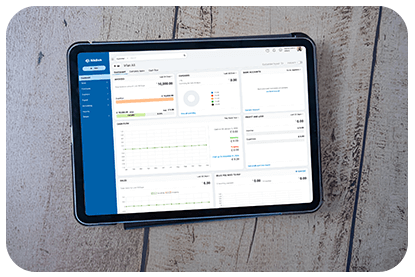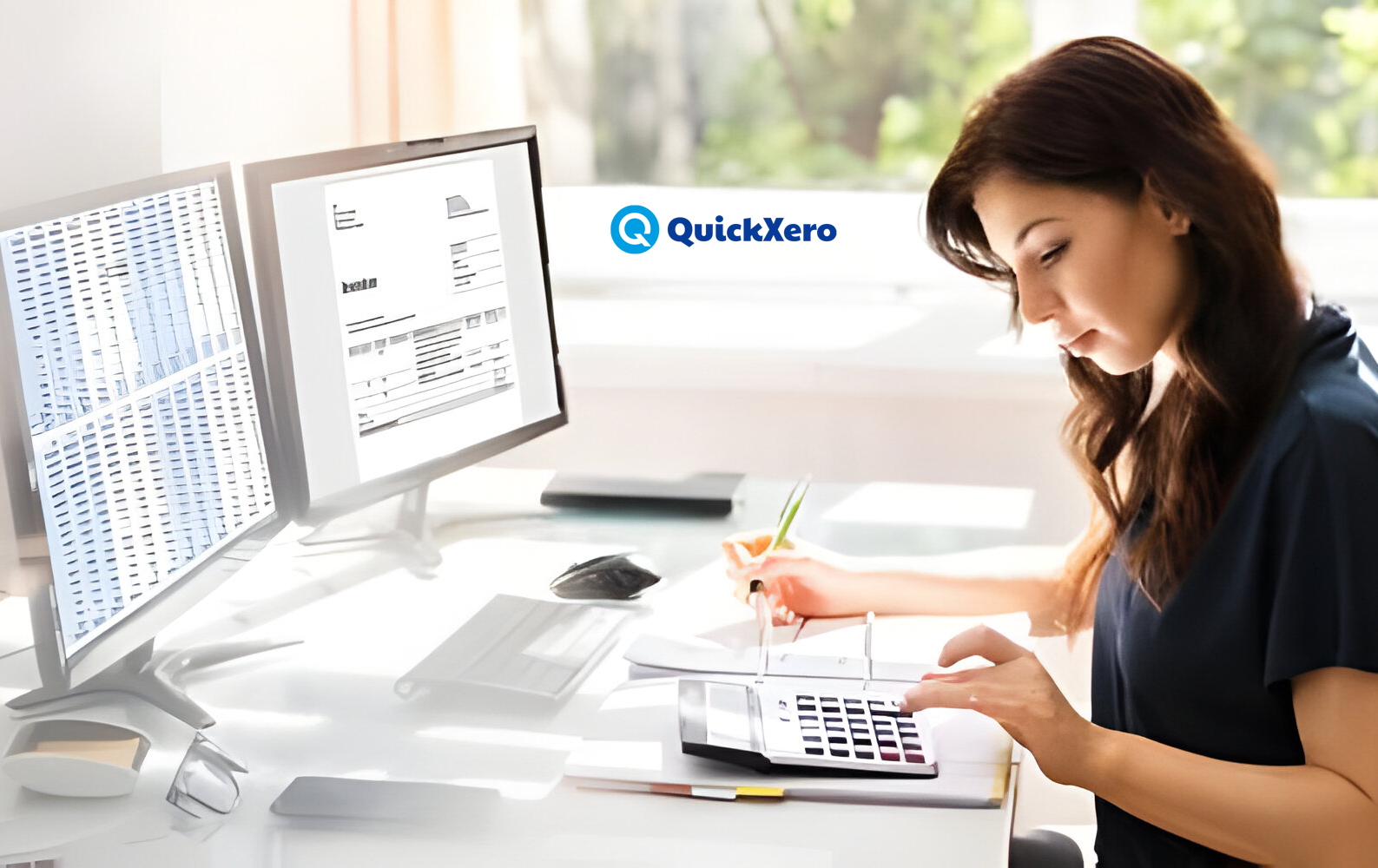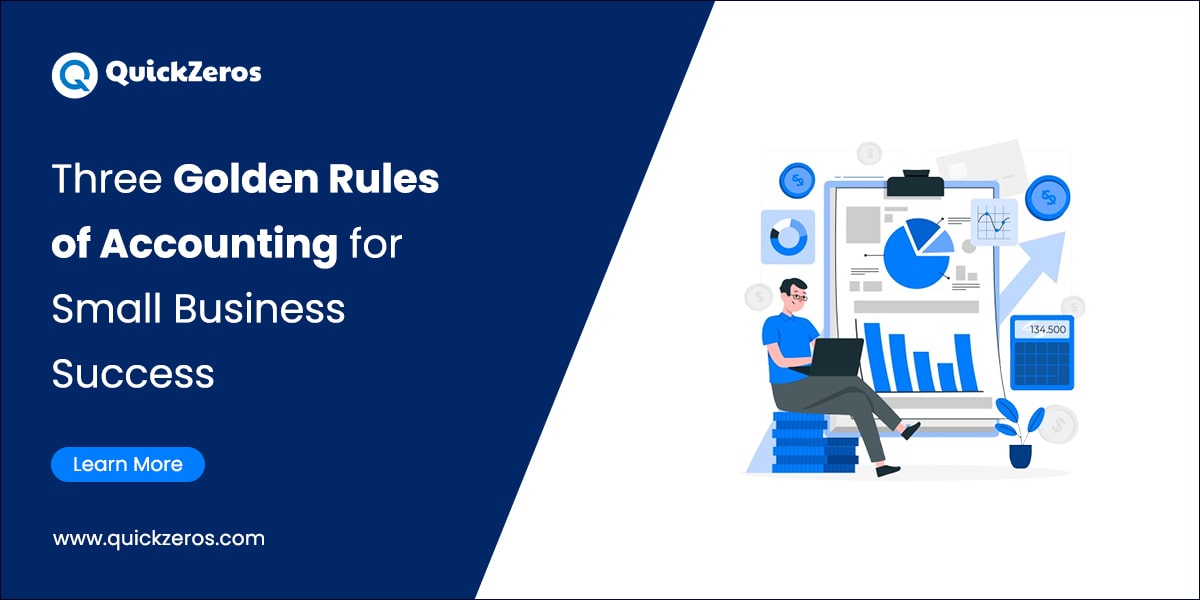19 April 2024
Top Benefits of Small Business Accounting Software for Growth
Small businesses face a unique set of challenges, especially when it comes to managing finances. As a small business owner, handling accounting tasks can often become overwhelming tracking expenses, managing invoices, calculating taxes, and ensuring compliance with financial regulations. Thankfully, small business accounting software has evolved to streamline these tasks and provide numerous benefits that drive growth.
Top Benefits of using Small Business Accounting Software
1. Streamlined Financial Management
Small business accounting software helps streamline complex financial processes by automating daily tasks such as tracking income and expenses, invoicing clients, and managing payroll.
With these processes automated, business owners no longer have to worry about manual data entry or making costly mistakes. This leaves more time for focusing on business operations and growth strategies.
By integrating all financial aspects into one software solution, business owners can access up-to-date financial reports and data instantly. This ease of access ensures better decision-making and smoother business operations.
2. Improved Accuracy and Reduced Errors
Manual accounting is prone to human errors. With small business accounting software, the chances of making mistakes significantly reduce. The software automates calculations, performs double-entry bookkeeping, and alerts you about potential discrepancies. This results in accurate financial records, reducing the risk of costly errors that could impact your business’s financial health or tax filings.
By maintaining accurate financial records, you also ensure compliance with tax regulations, avoiding penalties and fines.
3. Time-Saving Features
Time: A Valuable Asset for Small Business Owners. Accounting software helps save hours that would otherwise be spent on bookkeeping and data entry. Features like automatic bank feeds, recurring invoices, and expense categorization eliminate manual input, enabling business owners to focus on more strategic aspects of growth, such as customer acquisition, marketing, and product development.
The ability to quickly generate reports also saves time during tax season, making it easier to share financial data with accountants or tax professionals.
4. Real-Time Financial Insights
One of the most powerful features of accounting software is the ability to access real-time financial data. Business owners can instantly track cash flow, profit margins, outstanding invoices, and more. With these insights, you can identify trends, forecast future revenue, and make informed decisions.
For example, if you notice a decline in cash flow, you can take immediate action, such as reaching out to clients with overdue payments or cutting unnecessary expenses, preventing future financial strain.
5. Better Cash Flow Management
Proper Cash Flow Management is Essential for the Success and Longevity of Small Businesses Small business accounting software provides tools for tracking payments, invoicing, and managing expenses, helping you stay on top of your cash flow. With this data at your fingertips, you can identify potential cash flow issues and take proactive measures to prevent them.
Accounting software often offers features like payment reminders, recurring billing, and automated invoice generation, ensuring that you get paid on time and maintain positive cash flow.
6. Simplified Tax Filing and Compliance
Filing taxes can be one of the most daunting tasks for a small business owner. Small business accounting software makes tax filing easier by keeping track of expenses, income, and deductions throughout the year. Many accounting software platforms are also designed to automatically calculate taxes, helping you avoid mistakes and ensure that you’re compliant with local, state, and federal tax regulations.
The software also generates reports like profit and loss statements and balance sheets, making it easier to share necessary financial documents with your accountant come tax season.
7. Scalability for Growth
As Your Business Expands, Financial Management Becomes More Complex Small business accounting software can scale with your business, offering more advanced features as needed. Whether you’re expanding your product line, entering new markets, or increasing your workforce, the software can accommodate these changes, ensuring your finances remain organized and manageable.
Many accounting software platforms offer various pricing tiers or customization options, allowing you to access additional features like multi-currency support, advanced reporting, and inventory management as your business expands.
8. Enhanced Collaboration
Many small business accounting software platforms are cloud-based, enabling real-time collaboration with team members, accountants, or financial advisors. Cloud accounting solutions allow multiple users to access and update the same financial data, facilitating better communication and faster decision-making.
For example, a business owner can grant their accountant access to financial reports, while the accountant provides feedback and guidance on tax strategies or budgeting. This enhances collaboration without the need for back-and-forth emails or manually sharing files.
9. Cost Efficiency
While hiring an in-house accountant and bookkeeper may be expensive, small business accounting software offers a cost-effective solution. Most software platforms charge affordable monthly or yearly subscriptions, making it an ideal choice for small business owners who need to manage finances efficiently without a large budget.
Additionally, by reducing the risk of errors, improving efficiency, and ensuring tax compliance, accounting software helps save money in the long term, preventing costly mistakes and penalties.
10. Data Security
Handling financial data securely is a top priority for small businesses. Cloud-based accounting software typically employs encryption and other security measures to protect sensitive financial information. By using secure platforms, you reduce the risk of data breaches or unauthorized access to your financial records.
Moreover, most cloud accounting software automatically backs up data, ensuring that your financial information is safe and easily recoverable in case of a system failure.
Conclusion
Investing in small business accounting software is a strategic move that can accelerate business growth by streamlining financial processes, improving accuracy, and offering real-time insights. With enhanced cash flow management, simplified tax filing, and scalability, accounting software empowers business owners to focus on growing their businesses rather than managing tedious financial tasks. In today’s fast-paced business environment, having a reliable accounting solution is essential for success.




